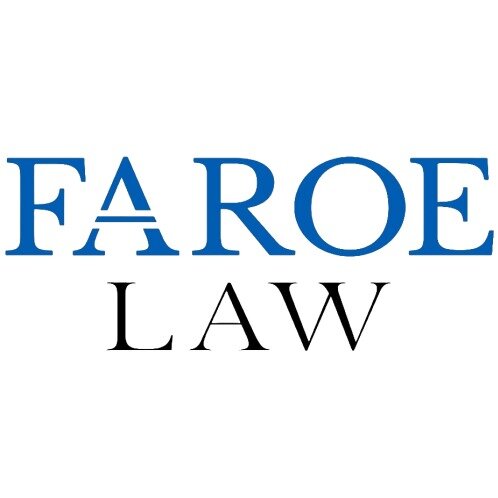Best Landlord & Tenant Lawyers in Faroe Islands
Share your needs with us, get contacted by law firms.
Free. Takes 2 min.
Free Guide to Hiring a Real Estate Lawyer
Or refine your search by selecting a city:
List of the best lawyers in Faroe Islands
About Landlord & Tenant Law in Faroe Islands
The Landlord and Tenant law in the Faroe Islands is primarily governed by the Tenancy Act, which outlines the legal framework for renting residential and commercial properties. This law aims to protect the rights and responsibilities of both landlords and tenants, ensuring fair treatment and resolving disputes effectively. Understanding the fundamental principles and regulations is crucial for maintaining a harmonious landlord-tenant relationship in the Faroe Islands.
Why You May Need a Lawyer
Engaging a lawyer experienced in Landlord and Tenant law is advisable in various situations. Common scenarios include resolving disputes between landlords and tenants, drafting or reviewing rental agreements, handling evictions, and dealing with issues related to security deposits and property maintenance. A legal professional can provide valuable guidance, ensuring compliance with local regulations and protecting your rights and interests.
Local Laws Overview
Key aspects of the local laws in the Faroe Islands regarding landlord and tenant relations include:
- Lease Agreements: Written agreements are essential, stipulating the terms and conditions of the tenancy to prevent misunderstandings.
- Rent Control: Rent increases are regulated and must be justified. Disputes can be resolved by appealing to the Rent Tribunal.
- Security Deposits: Landlords may require a security deposit, typically equivalent to three months’ rent, which must be returned at the end of the tenancy, subject to any fulfillment of the tenancy agreement.
- Maintenance and Repairs: Landlords are responsible for ensuring the property is habitable and addressing significant repairs, whereas tenants must maintain cleanliness and minor repairs.
- Evictions: Eviction procedures are strictly regulated to protect tenants from unlawful removal. Proper notice and a legal basis for eviction must be provided.
Frequently Asked Questions
What should a rental agreement include?
A rental agreement should include the identities of the parties, rent amount, duration of the lease, security deposit details, responsibilities of maintenance, and conditions for termination.
How is a rental increase handled?
Landlords can propose a rent increase, but it must reflect market rates and tenant improvements. Tenants can contest unjustified increases through the Rent Tribunal.
What can be done in case of a repair dispute?
Tenants should report any repair needs to the landlord. If unresolved, tenants may appeal to the local housing committee or seek legal intervention.
How are security deposits managed?
Typically, security deposits are kept in a separate account and should be returned upon lease termination, minus any justified deductions for damages beyond normal wear and tear.
What grounds justify eviction?
Evictions can occur for non-payment of rent, breach of lease terms, or use of property for illegal activities. Proper procedures and notice must be observed.
Can a lease be terminated early?
Early termination may occur by mutual agreement or if stipulated in the lease. Breach of agreement by either party can also be a reason, with potential legal repercussions.
Are there protections against discrimination in housing?
Yes, tenants are protected against discrimination based on ethnicity, gender, religion, or other protected characteristics under Faroese law.
Who handles disputes between landlords and tenants?
Disputes can be initially addressed through negotiation or mediation. If unresolved, legal intervention or elevating the issue to the Rent Tribunal or housing committee is possible.
What are a tenant's rights to privacy?
Tenants have the right to privacy, meaning landlords can only enter the premises with proper notice or in emergencies.
How is subletting handled?
Subletting usually requires the landlord's approval, as stipulated in the lease agreement. Unauthorized subletting can result in lease termination.
Additional Resources
For further assistance, several resources are available:
- The local housing committee often provides guidance and mediation services.
- Legal aid services offer advice and representation for those who qualify.
- The Rent Tribunal is available for disputes over rent and lease terms.
- Government websites may provide updated laws and regulations related to housing.
Next Steps
If you need legal assistance concerning landlord and tenant issues, begin by consulting with a lawyer specializing in this area. Collect all relevant documentation, including rental agreements and correspondence with your landlord or tenant, to provide to your lawyer. Consider reaching out to the housing committee or other relevant organizations that might offer support or mediation services. Always ensure you are acting within the framework of the Faroese legal system to protect your rights and interests.
Lawzana helps you find the best lawyers and law firms in Faroe Islands through a curated and pre-screened list of qualified legal professionals. Our platform offers rankings and detailed profiles of attorneys and law firms, allowing you to compare based on practice areas, including Landlord & Tenant, experience, and client feedback.
Each profile includes a description of the firm's areas of practice, client reviews, team members and partners, year of establishment, spoken languages, office locations, contact information, social media presence, and any published articles or resources. Most firms on our platform speak English and are experienced in both local and international legal matters.
Get a quote from top-rated law firms in Faroe Islands — quickly, securely, and without unnecessary hassle.
Disclaimer:
The information provided on this page is for general informational purposes only and does not constitute legal advice. While we strive to ensure the accuracy and relevance of the content, legal information may change over time, and interpretations of the law can vary. You should always consult with a qualified legal professional for advice specific to your situation.
We disclaim all liability for actions taken or not taken based on the content of this page. If you believe any information is incorrect or outdated, please contact us, and we will review and update it where appropriate.
Browse landlord & tenant law firms by city in Faroe Islands
Refine your search by selecting a city.










